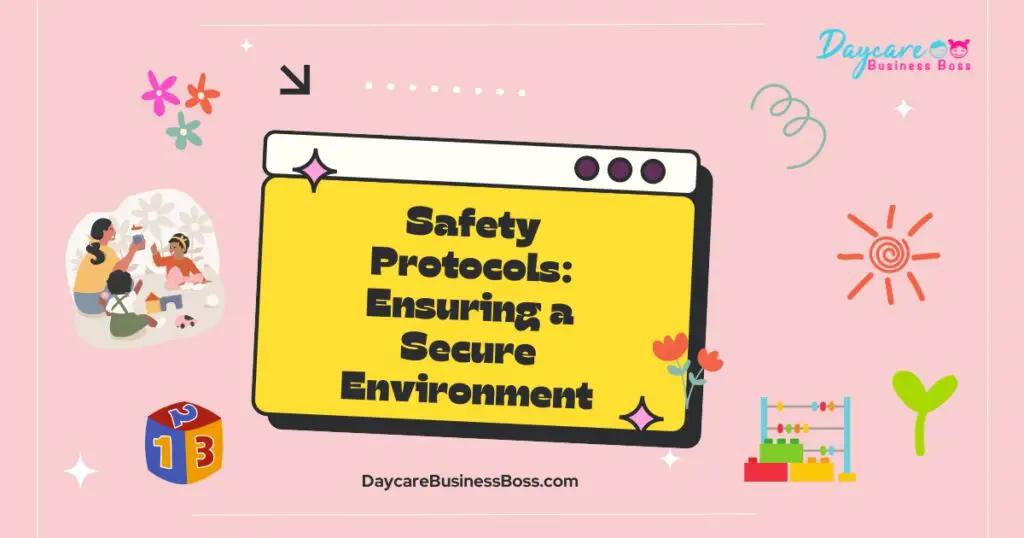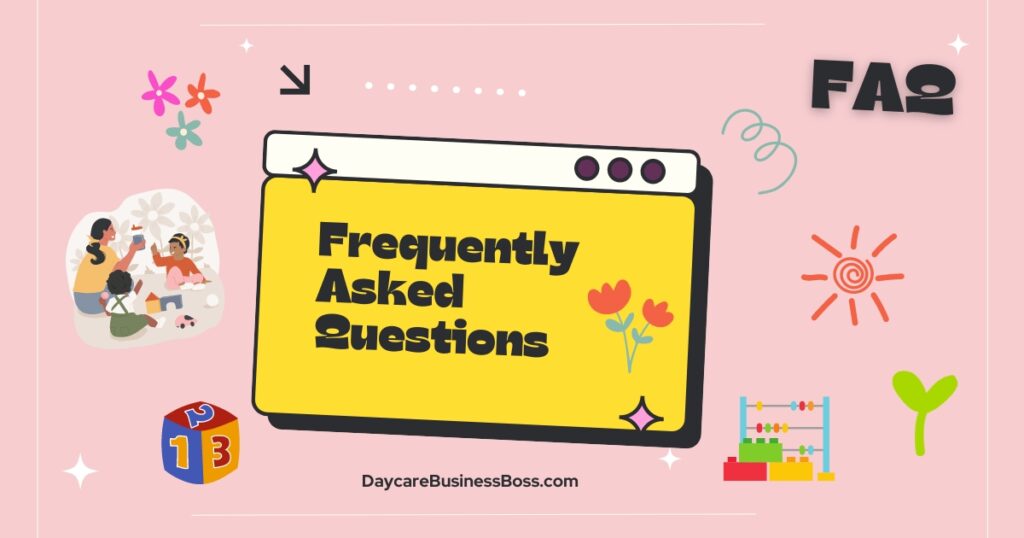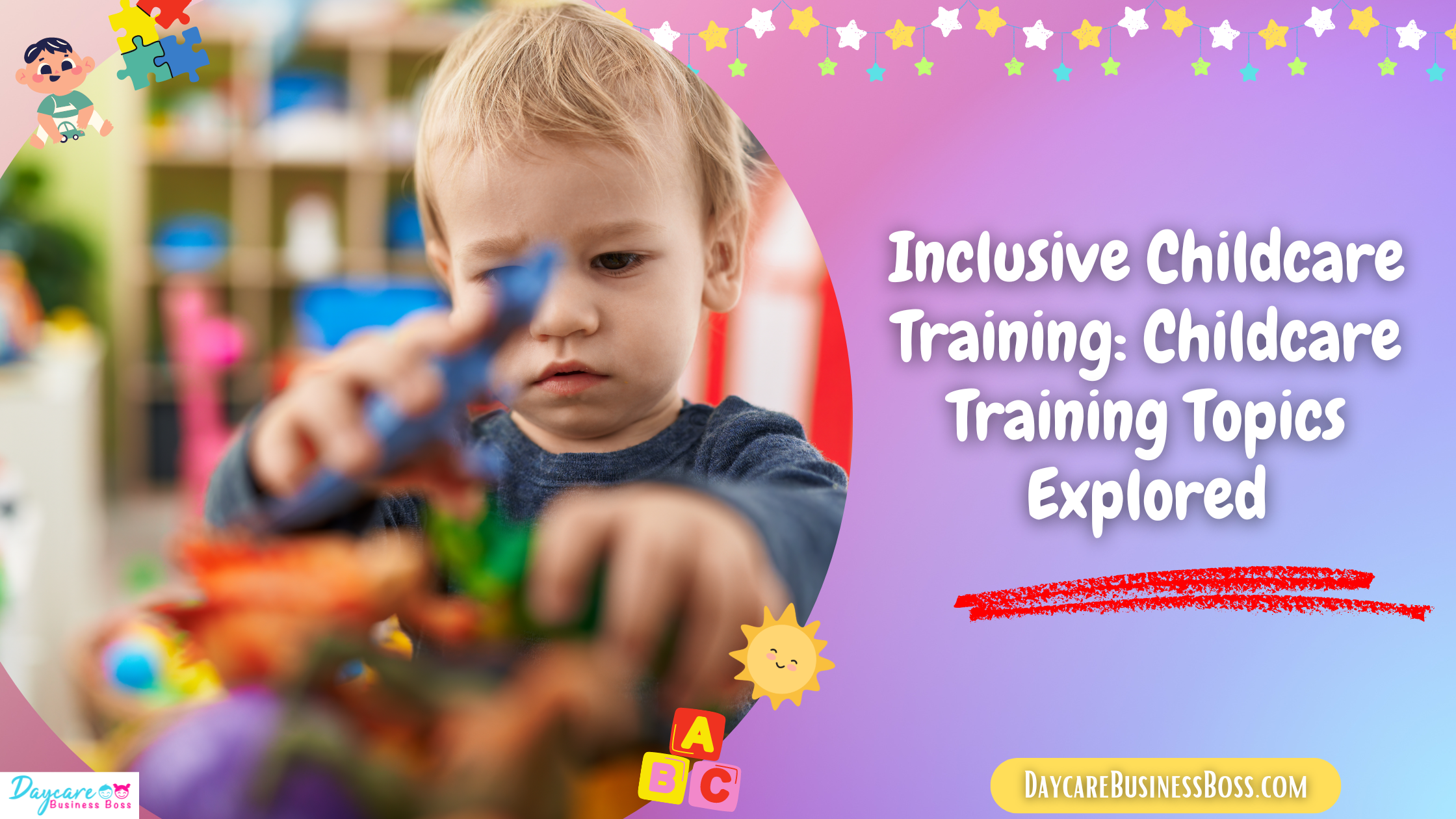Caregivers play a critical role in the delicate fabric of a child’s development. Every conversation, lesson, and caring moment helps to shape the young minds entrusted to their care. Comprehensive childcare training emerges as the guiding light that illuminates the route for caregivers in this pursuit of excellence.
The most useful childcare training covers diverse topics. These include child development, safety protocols, behavior management, hygiene, nutrition, first aid, communication, play-based learning, cultural sensitivity, inclusion, and legal regulations.
This article takes the reader on a tour through the mosaic of childcare training subjects, diving into the relevance of each thread that weaves together to create a rich and secure environment in which children can thrive.
Child Development: Nurturing Individual Potential
Child development is the foundation of effective childcare, setting the platform for caregivers to deliver the best possible care. Caregivers develop insights into the many dimensions of children’s physical, cognitive, emotional, and social progressions through extensive training in this subject. This understanding enables them to recognize and appreciate the various stages of child development, allowing them to tailor interactions and activities to each kid’s specific needs.
A thorough understanding of infant development enables caregivers to traverse the complex road of nurturing with ease. Caregivers can construct treatments that resonate with a child’s changing capacities and inclinations by knowing the exact developmental juncture he or she is at. This personalized approach not only assists children in meeting critical developmental milestones but also fosters a strong foundation of self-assurance and self-identity.
Safety Protocols: Ensuring a Secure Environment

Childcare settings serve an important role as safe havens for a child’s journey of exploration and growth. Safety protocol training is critical to ensuring that these places are conducive to healthy growth. This program equips caregivers with the knowledge to identify potential hazards, proactively implement preventative measures, and effectively handle emergencies.
Caregivers create environments that are not only caring but also secure by mastering safety protocols. They develop a keen eye for detecting concealed risks that would otherwise go unnoticed. Armed with this knowledge, they work hard to establish an atmosphere in which children can learn, play, and grow without being exposed to unnecessary risks. This creates a trusting environment for both parents and guardians, reassuring them that their child is in good hands.
Caregivers go beyond mere surveillance by fostering a culture of safety and actively participating in proactive action. This is critical because it helps children to thrive cognitively, emotionally, and socially without the looming fear of avoidable mishaps. In essence, safety rules serve as the foundation upon which the scaffold of a child’s general growth is built.
Behavior Management: Cultivating Positive Habits
Behavior management technique mastery is an empowering asset that provides caregivers with the means to overcome tough behavior in children. Caregivers have a critical role in cultivating not merely compliant behavior, but the fundamental development of key life skills through the effective use of tactics such as positive reinforcement, the formation of well-defined boundaries, and the promotion of open communication.
Positive reinforcement is a fundamental approach in behavior management. Caregivers are skilled at identifying and recognizing positive activities, creating a loop in which desired behaviors are repeatedly reinforced. This not only encourages youngsters to repeat these behaviors, but it also provides the framework for the development of self-control and a sense of achievement. Setting defined limits also gives youngsters a secure foundation to govern their actions and choices. These boundaries provide a sense of security while also teaching youngsters the concept of limits, which promotes the development of empathy and understanding.
It is also critical to encourage open communication. Caregivers who create an environment in which children may communicate their feelings and worries without fear of being judged or reprimanded help children develop effective problem-solving abilities. This open discussion fosters trust and respect between caregivers and children, allowing them to confront difficult situations together.
Read more about: Ready, Set, License: How to Obtain a License for Your Daycare
Hygiene and Nutrition: Fostering Health and Well-Being
Childcare training focuses on the critical aspects of maintaining adequate sanitary standards and providing well-rounded nutrition to young minds. Caregivers who have received this training can protect their children’s physical health as well as their overall development. Caregivers provide an atmosphere in which children can thrive by emphasizing sanitation and adequate diet.
Caregivers who are educated play an important role in teaching cleanliness practices that last beyond childhood. They create an environment in which children learn to wash their hands, cover their mouths when sneezing, and maintain overall cleanliness by paying painstaking attention to cleanliness. These early behaviors become lifelong practices that protect not only the child but also the greater community.
Providing appropriate nourishment is a cornerstone of childcare instruction. Caregivers learn to prepare meals that meet the different nutritional needs of developing children. Such meals not only promote physical development but also cognitive development. The importance of proper nutrition on a child’s cognitive and learning capacities cannot be emphasized.
First Aid: Responding Swiftly to Emergencies
Accidents are unavoidable even in the most secure of childcare environments. Recognizing this truth highlights the importance of caregiver first aid training. Such training serves as a key armory, providing carers with the tools they need to respond quickly and professionally in the case of unanticipated accidents or emergencies.
The heart of first aid training is its capacity to provide caregivers with the confidence and knowledge they need to respond quickly. Whether it’s a tiny scrape, a quick allergic response, or any other unplanned medical crisis, caregivers who grasp basic first aid methods become important first responders. Their ability to provide rapid aid can make a big difference in the outcome of an injury while professional medical attention is sought.
Caregivers who learn how to stop bleeding, apply bandages, conduct CPR, and handle choking situations not only reduce bodily harm but also provide a reassuring environment for both the children in their care and their parents. The sense of security provided by caregivers who are knowledgeable about first aid procedures is incalculable, as it reassures families that their children are in capable hands.
Communication: Building Strong Relationships
A vibrant and peaceful daycare community is built on the foundation of good communication. Communication training becomes the cornerstone that encourages understanding, cooperation, and empathy in this intricate web comprising caregivers, children, and parents. This program equips caregivers with the skills necessary to relay instructions clearly, listen intently, and respond to concerns with true empathy, ultimately establishing an environment in which every voice is heard and respected.
Clear communication is a sign of a competent caretaker. Caregivers who are well-versed in communication skills can effectively express instructions to children. This clarity reduces uncertainty, allowing youngsters to engage in tasks and activities more efficiently. The skill of attentive listening allows caretakers to genuinely understand a child’s needs, feelings, and points of view. This promotes a sense of connection and trust in children, demonstrating that their opinions are respected.
Equally important is the ability to handle concerns empathically. Caregivers who have received communication training can manage challenging talks with tact and respect. Caregivers create an environment where children and parents feel comfortable voicing their issues by noticing and affirming them, resulting in faster resolution and increased trust.
Play-Based Learning: Unleashing Creativity and Curiosity
Play, which is frequently misunderstood as mere entertainment, is a critical conduit for learning that extends beyond its joyous appearance. The powerful fusion of play and learning is being highlighted in the field of childcare training, as educators understand its complex impact on cognitive, social, and emotional development. Guided by this realization, caregivers go on a quest to harness the potential of play-based learning, creating an atmosphere in which education and fun coexist.
Childcare training unearths a rich mine of play-based learning methods, indicating their ability to stimulate children’s overall development. Caregivers who go into this domain discover the transforming power of play to enhance cognitive capacities, strengthen social skills, and cultivate emotional intelligence. Armed with this knowledge, caregivers take on the role of architects, creating activities that foster creativity, problem-solving, and teamwork.
Children are attracted to explore their imaginations, face obstacles, and traverse complex social relations through play. This trinity of abilities, when combined with deliberate play-based learning activities, forges a route for holistic development. Caregivers create the groundwork for well-rounded development by orchestrating scenarios that allow children to construct narratives, solve riddles, and collaborate with others, all while children are absorbed in the sheer delight of play.
Cultural Sensitivity: Embracing Diversity
In today’s global context, childcare settings regularly collect children from a diverse range of cultural origins. As a result, cultural sensitivity training is becoming more important than ever. This training serves as a beacon, illuminating caregivers on the complexities of various traditions, languages, and values. With this knowledge, caregivers may create an environment that welcomes differences, promoting a sense of belonging and validation for all children.
Cultural sensitivity training acts as a link between caregivers and the diverse perspectives that define each child’s identity. This training not only instills a sense of cultural nuances in caregivers but also expands their comprehension of the many threads that weave the fabric of a child’s ancestry. Caregivers create an inclusive environment in which children feel seen, heard, and appreciated for who they are by identifying and accepting these qualities.
This training’s importance is felt throughout the daycare sector. Caregivers create the stage for reciprocal learning and cross-cultural friendships to bloom by fostering an environment that values variety. Children are prepared for a world that is indisputably interconnected and multifaceted by sowing the seeds of empathy and open-mindedness.
Read more about: Revolutionizing Childcare: Innovative Daycare Business Ideas for Holistic Growth
Inclusion: Catering to Individual Needs
In childhood’s variegated tapestry, recognizing each child’s uniqueness becomes critical. In their function as loving mentors, childcare providers must negotiate the gamut of individual requirements. Inclusion training, a beacon of direction, provides caregivers with a variety of ways for creating an atmosphere in which children of diverse abilities can learn and play together in harmony. This mosaic of inclusiveness fosters a strong sense of belonging and ignites the fires of empathy and understanding in all youngsters.
Inclusion training enables caregivers to celebrate the diverse range of abilities that children possess. Caregivers create an atmosphere in which every kid can shine by using tactics that cater to different learning styles and requirements. This is more than just accommodating; it fosters a true sense of belonging in which each child’s abilities are appreciated and their problems are met with constant support.
Inclusion’s transforming power extends beyond individual children. Children acquire a natural sense of empathy and understanding through learning and playing together. They witness firsthand the magnificent range of human experience, breaking down barriers and building connections that stretch well beyond the boundaries of the childcare environment.
Legal Regulations: Operating within Guidelines
Within the complex terrain of childcare, providers are confronted with legal duties that affect the integrity of their operations. The importance of compliance is highlighted as legal regulation training serves as a compass directing caregivers through the maze of licensing, health and safety standards, and multifarious legal responsibilities. This thorough instruction not only ensures the well-being of the children in their care but also emphasizes the facility’s dedication to ethical standards.
Legal training guides caregivers through the complex web of licensing obligations. This deep knowledge guarantees that the childcare facility follows the rules and obtains the appropriate certifications and permissions. This training dives into health and safety regulations, providing caregivers with the tools they need to build an atmosphere that emphasizes the physical and emotional safety of the children.
Caregivers who receive this training learn to operate ethically, transparently, and by legal rules. The knowledge taught ensures that the childcare facility is a haven of trust, where parents and guardians can confidently entrust their children’s well-being.
Frequently Asked Questions

What topics are typically covered in comprehensive childcare training?
Comprehensive childcare training typically covers a wide range of essential topics, including child development, safety protocols, behavior management, hygiene, nutrition, first aid, communication, play-based learning, cultural sensitivity, inclusion, and legal regulations. These categories teach caregivers how to offer a safe, nurturing, and enriching environment for children.
How does cultural sensitivity training assist childcare providers understand and respect varied cultural backgrounds, languages, and traditions?
Cultural sensitivity training helps childcare providers understand and respect diverse cultural backgrounds, languages, and traditions. Caregivers ensure that all children feel loved and understood by creating an inclusive environment. This training fosters a sense of belonging and fosters an environment in which children from many origins can study and play together in harmony.
Why is play-based learning important in childcare training?
Play-based learning is important in childcare training because it supports holistic development. Childcare education focuses on incorporating play into educational activities since it promotes cognitive, social, and emotional development. Caregivers learn how to create engaging activities that promote creativity, problem-solving, and teamwork, allowing children to learn and flourish while having fun in childcare settings.
To learn more on how to start your own daycare checkout my startup documents here.
The information provided by DaycareBusinessBoss.com (“The Site”) is for general informational purposes only. All information on the Site is provided in good faith, however, we make no representation or warranty of any kind, express or implied, regarding the accuracy, adequacy, validity, reliability, availability or completeness of any information on the Site. Under no circumstance shall we have any liability to you for any loss or damage of any kind incurred as a result of the use of the Site or Reliance on any information provided on the Site. Your use of the Site and your reliance on any information on the Site is solely at your own risk.
This blog post is for educational purposes only and does not constitute legal advice. Please consult a legal expert to address your specific needs. Terms and Conditions. (https://daycarebusinessboss.com/terms-conditions/)

Meet Shawn Chun: Entrepreneur and Childcare Business Fan.
I’m a happy individual who happens to be an entrepreneur. I have owned several types of businesses in my life from a coffee shop to an import and export business to an online review business plus a few more and now I create online daycare business resources for those interested in starting new ventures. It’s demanding work but I love it. I do it for those passionate about their business and their goals. That’s why when I meet a childcare business owner, I see myself. I know how hard the struggle is to retain clients, find good employees and keep the business growing all while trying to stay competitive.
That’s why I created Daycare Business Boss: I want to help childcare business owners like you build a thriving business that brings you endless joy and supports your ideal lifestyle.

